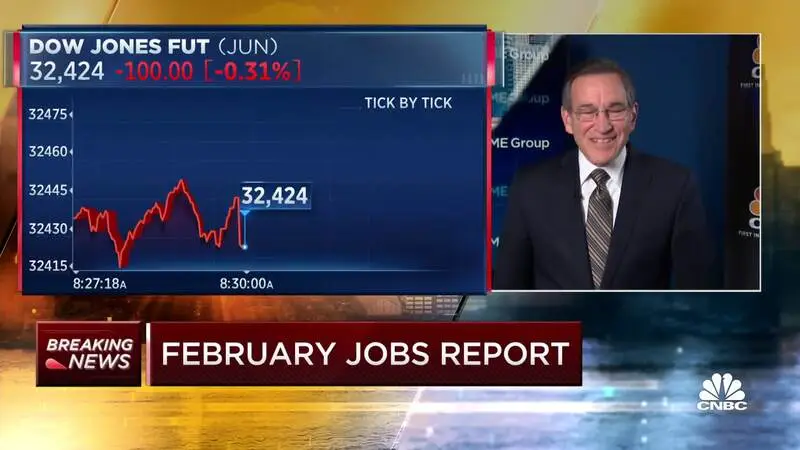
Wage growth is cooling — but workers still have bargaining power, economists say
The pace of wage growth seems to be decelerating, according to the February jobs report issued Friday — but workers still have bargaining power in a cooling but strong job market, economists said.
"Workers have a very strong negotiating position," Mark Zandi, chief economist of Moody's Analytics. "The labor market is still very strong and workers are still in the driver's seat."
Workers have enjoyed historically large raises and pay increases since early 2021. Employers had to compete for workers in a hot market characterized by record job openings and turnover.
While growth is still above average, the trendline points at a slowdown, economists said.
Employees saw their average hourly earnings increase by 0.2% from January to February, the U.S. Bureau of Labor Statistics said Friday. That's down from a monthly rate of 0.3% in January and December, and 0.6% in November.
It's also the slowest monthly gain since February 2022, according to Jeffrey Roach, chief economist at LPL Financial.

Meanwhile, other pay indicators also suggest a pullback.
Annual wage growth declined to 6.1% in January from a peak 6.7% over the summer, according to the Federal Reserve Bank of Atlanta. However, the current level is still higher than any pre-pandemic point in the past 25 years, data show.
Average compensation growth — including wages, salaries and benefits — declined to 1% in December from 1.2% in September, according to the Employment Cost Index, issued quarterly. (These figures are a three-month average.)
"Wage growth feels like it has rolled over," Zandi said.
More from Personal Finance:
Biden budget calls for 'protecting and strengthening' Social Security
Companies enhance benefits to help employees balance work and caregiving
President Biden's proposed 2024 budget calls for top 39.6% tax rate
Why economists say it's good wages are moderating
This isn't necessarily a bad sign for workers, economists said.
The Federal Reserve has been raising interest rates aggressively to try cooling the economy and rein in high inflation. Reducing wage growth is a key aim for the central bank; those labor costs have been a contributing factor to historically high growth in the prices consumers pay for goods and services.
Inflation has been outstripping pay growth for the average worker. The Fed is trying to reverse that dynamic, so workers enjoy wage gains after accounting for inflation.
Overall job growth in February was stronger than expected and participation in the labor force rebounded to its highest level since March 2020.
The labor market is still very strong and workers are still in the driver's seat.Mark Zandichief economist of Moody's Analytics
"Stronger rates of participation could help companies fill open positions and ease wage growth pressures going forward," said Julia Pollak, chief economist at ZipRecruiter.
"Overall, then, the [February jobs] report suggests U.S. workers are enjoying the best of both worlds — robust job growth paired with easing inflationary pressures," she said.
Not all workers necessarily have bargaining power in the current environment, though, said Aaron Terrazas, chief economist at Glassdoor, a job site.
Workers in "front line, skilled vocational work" are in a position of strength, he said. Those include sectors like healthcare and leisure and hospitality, he said. Those sectors saw "notable job gains" in February, according to the Bureau of Labor Statistics.
But job seekers in other sectors — particularly in "skilled, knowledge work," including technology and real estate — have "dramatically less" power now, Terrazas said.
However, this isn't necessarily a surprise since these are among the most interest-rate sensitive areas of the U.S. economy, Zandi said. Slowing the U.S. economy means some part of it will suffer a pullback, even if the broader economic picture remains largely healthy, he said.
"We want a world where unemployment is low, there are lots of jobs, inflation is under control and your wages are rising faster than inflation," Zandi said. "All in all, that's what appears to be happening ... though maybe not fast as people want to see."
Source: https://www.cnbc.com/2023/03/10/wage-growth-is-cooling-but-workers-still-have-bargaining-power.html






